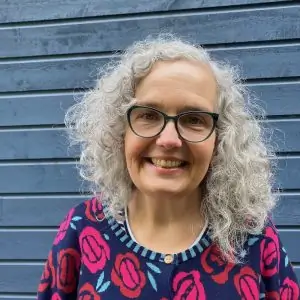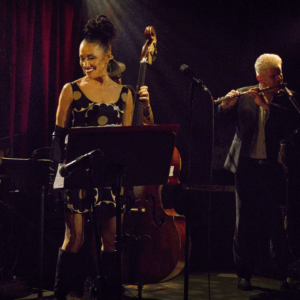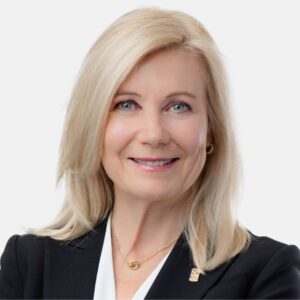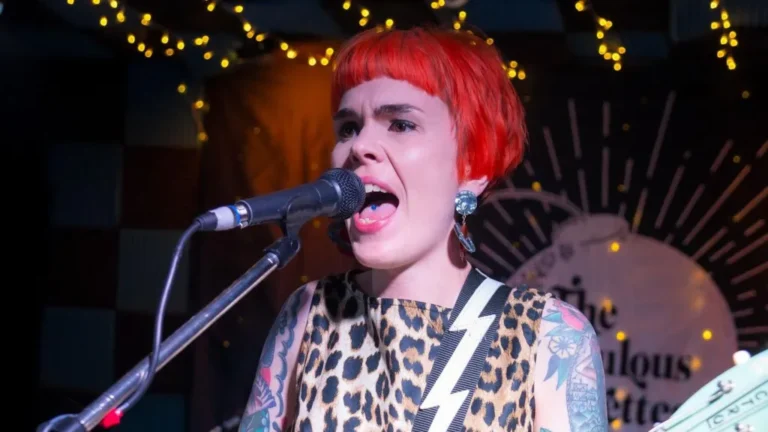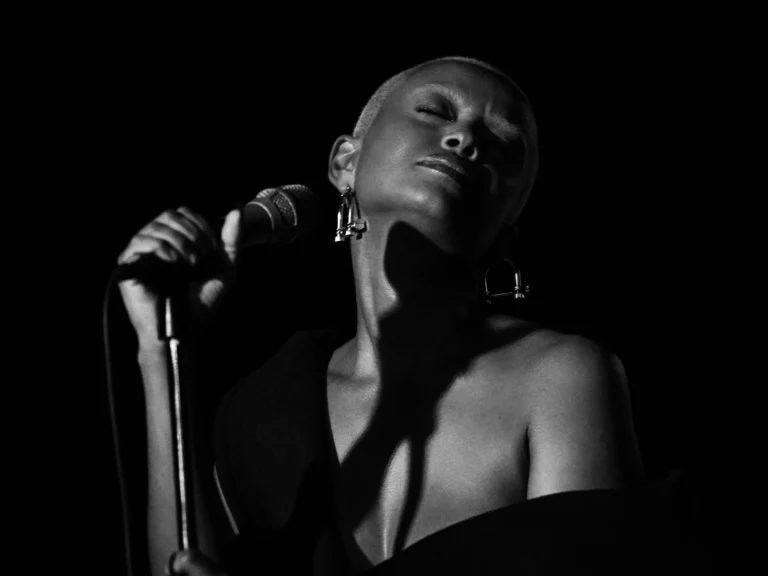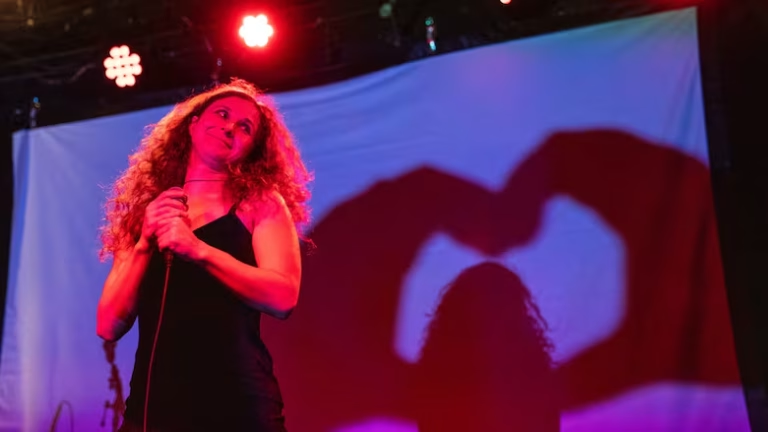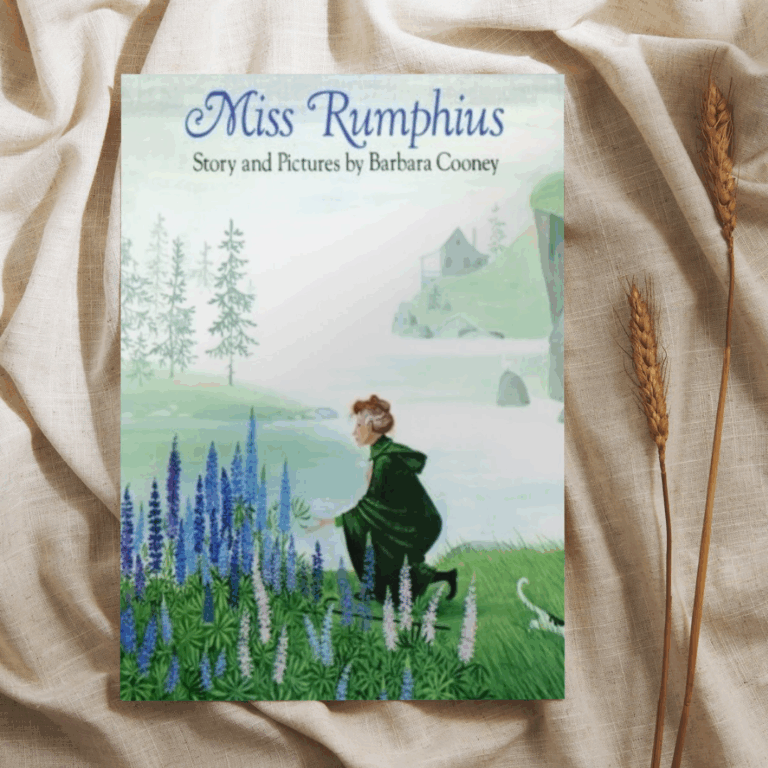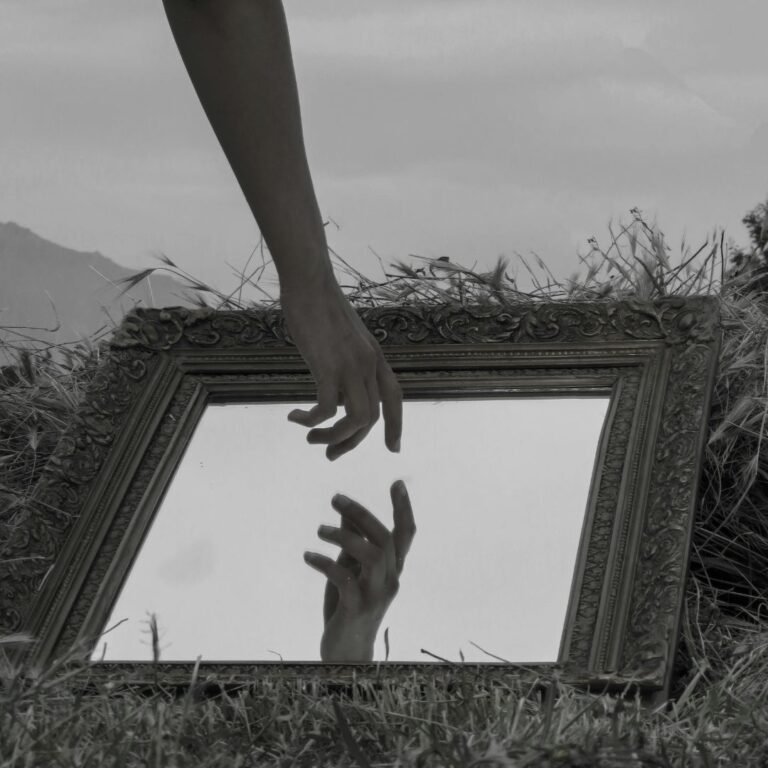Bif Naked — Canadian rock icon, breast cancer survivor
We have talked to female political leaders and journalists, to activists and athletes. But this episode is the first time we speak with a leading punk rock artist! Bif Naked is a Canadian musical icon with a multi-decade, award-winning global career.
In this episode of The Honest Talk, we talk with Bif about her birth in India, and how being adopted by missionaries shaped her life. She shares with us her reflections on having breast cancer, being married three times, and staying positive in the face of the ups and downs that mark a life well lived.
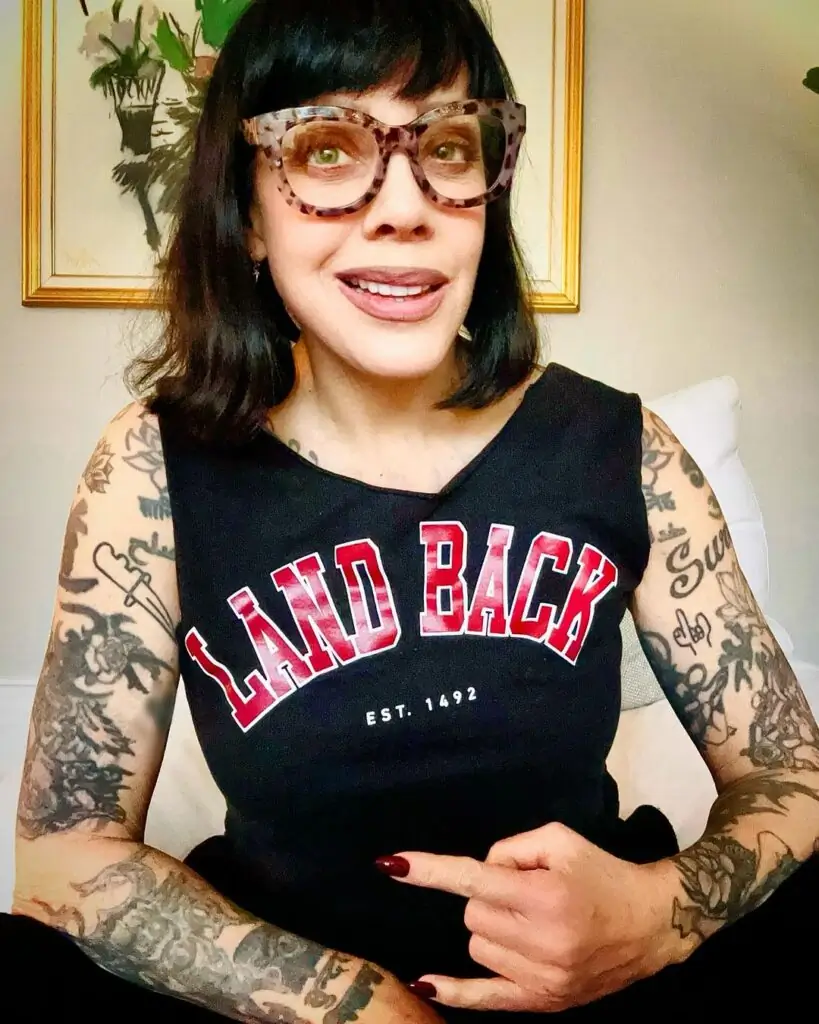
Bif Naked on her origins and being adopted
Jennifer Stewart: You have a pretty wild birth story. You were born in India, in secret, to teenage parents whose families rejected you. You were housed in a mental hospital until you were adopted by missionaries. That is not an easy storybook infancy. How did those early days shape who you are today?
Bif Naked: I’ve had a great upbringing. My parents are fabulous individuals. They are both bleeding heart socialists — even though they are Americans, they are civil rights activists. My parents moved to Canada when my sisters and I were very small.
And I now know my birth mom. I have a great relationship with my birth mom, who lives in Canada now. And she’s only 15 years older than me. I also have great insight into, in general, what is environmental in my personality and what is genetic, and these things are glaringly obvious.
I’ve been really lucky. I love being a Canadian — I’ve been a Canadian my whole life — but being an adoptee is something that is a very powerful part of my existence. It really did shape who I am. And I’ve always known I was adopted, even though I’m fiercely, fiercely pro-choice.
Catherine Clark: It’s interesting that you’ve really talked about the adoption element, but you also refer to your parents very much as mom and dad. They were really open about the fact that you were adopted. Sometimes when you talk to kids who are adopted, there’s been a bit of trauma because it was never talked about. Was it a positive thing in your household when people talked about the fact that you were adopted?
Bif Naked: My older sister was adopted a year before me. She’s an Indian baby. There was a brown kid; a white kid, who was me; and my younger sister, my parents’ natural child, also Caucasian. So, we have this kind of weird and wonderful, multicoloured family growing up.
And my parents really did encourage us, even though my parents were Christian, they really encouraged us to really explore our Indian birthright, is how my parents put it. And even though my sister was the brown kid, and I was basically the white kid, with no real general knowledge — I knew my birth mom was Caucasian, but she was also adopted, so there was no real understanding of where I came from. Was I Portuguese, was I Russian? I had these wild fantasies.
My father accused me of being a cherry picker, because I had a love of theology and wanted to go into divinity studies and all of this stuff that he teased me mercilessly about. I dropped out of university and joined a punk rock band instead — very close to divinity.
I think that we were lucky to be raised in a home that allowed us to ask all those questions. But I can’t say if it’s because my parents were academics that we were encouraged in all of these ways.
We didn’t grow up with the Internet. So, if we had grown up with the Internet, maybe we would have found all of these things on our own. But my parents encouraged us to read and to seek and explore on our own.
Bif Naked on being optimistic and avoiding victim mentality
Jennifer Stewart: How do you avoid the victim mentality based on everything that’s happened in your life, and be so positive and be such a force?
Bif Naked: I’m still learning and unlearning as I go along. I got married at 18 — I married my drummer. And then I didn’t get married again until I was 36 years old. I was diagnosed with breast cancer two weeks after I was married. We were only married for two years. And then I got married again in my 40s. And then that unraveled. And so now here I am, as a woman in her 50s, who’s been very lucky to be a working artist all of these years.
And now I look ahead into this chapter in my life, and like a lot of women of my generation, Gen X, I have no regrets in my life. Certainly, I wish I would have had kids, because all of my other girlfriends had kids, and now all their kids are in university or have moved on.
But I’ve discovered that I’m still learning, and I’m still learning about how my story is — I think we tell ourselves stories, and we have a story that goes along with our life. And we retell our story. And I’m discovering, what is my story?
Well, my story is, I’m a working artist in my 50s. I’ve been married this many times, and I think how we tell our stories is whether or not we are victims and whether or not we carry with us this victim story that we have. We get to rewrite our story.
I get to reexamine that as I move forward, but we can’t anticipate how things will go. How do we reframe the B.S. we tell ourselves? There’s a lot of things that suck from day to day, and we can still be optimistic. I think that the story that we can write for ourselves each morning really can make a difference.
Catherine Clark: I love the focus on optimism. You have had such an interesting life, and part of the reason we’re having this conversation is because it’s the 25th anniversary of the release of your huge album, I Bificus, but I want to take us back to the beginning. Because at the beginning you thought you were going to be a prima ballerina. Why this sudden left turn in life?
Bif Naked: We were living in Dauphin, Manitoba. That was Canada’s national Ukrainian capital. I learned to flick a cigarette butt while walking home from school in grade eight. That’s just how it was. Let’s be honest. I was never going to be a prima ballerina. I liked pierogies and french fries. There was no way. I wasn’t talented enough to be a ballerina, and I just didn’t have the self-discipline.
I believe in destiny, for sure. I was a performing arts kid. I never shut up. I was in drama class. But I never took choral. I wasn’t a singer; I’m still not a singer. It wasn’t hard to sing in a punk rock band. All I had to have was something to say.
Social justice is a catchphrase today, but back in the late ‘80s, we were upset about stuff that we saw on the news, and we were upset about the way people were being treated, and we sang songs about it. That’s all it really took to be in a band. And today, that’s still all it really takes.
Bif Naked on how breast cancer impacted her life
Jennifer Stewart: You faced a breast cancer diagnosis in your 30s. How did that experience shape you? What was that experience like for you?
Bif Naked: It was amazing! It was the best thing that ever happened to me in so many ways. And for me, that lived experience was really important to have in my life: to have a surgical port, to go through chemotherapy, to lose my hair, to go through radiation, and to feel the after-effects of that for years.
It was important for me to know because if some charity or women’s group is going to hire me to speak about something, I want to be able to really know what I’m talking about. So that when I’m speaking to women who are going through it, I want to be able to honestly speak to them and for them to feel like I really know what I’m talking about and not just to be some woman up there in a dress that they can’t relate to.
Breast cancer gave me an experience to have a fellowship with women I never would have had. I was never around women — I was on a tour bus with men from 18 until my diagnosis at 36. I’d never taken even a week off of touring in my adult life. I called it my cancer vacation because I had never been off tour, ever.
Cancer shows you what you’re made of.
Bif Naked
Cancer shows you what you’re made of — any health crisis will. It really gave me an insight into the health industry and the cancer industry and the pharmaceutical industry.
That was 13 years ago. Do I feel I’m lucky to be alive? Every day! Did I overcome things after that, like heart surgery? Yes.
I love the fact that I was kind of accidentally dragged into volunteering because of my proximity to the patient population, and I became a palliative care volunteer as a result of being a patient.
Before the pandemic, I was getting death doula training through the Home Hospice Association in Toronto. There are so many things that happened because I was a patient and I feel so fortunate to have had that experience and to be able to be a volunteer because of it.
Bif Naked’s advice for women
Catherine Clark: You’ve been through a lot of different experiences in life. What’s your advice to other women about staying true to themselves through all the ups and downs of life?
Bif Naked: The number one thing that we can do as women is to laugh. We have to be able to laugh at ourselves and with one another. I really believe in the fellowship of other women. And you don’t even have to know other women to be able to share a laugh with them. A shared laugh between women is something that is real and will always really make our day.

